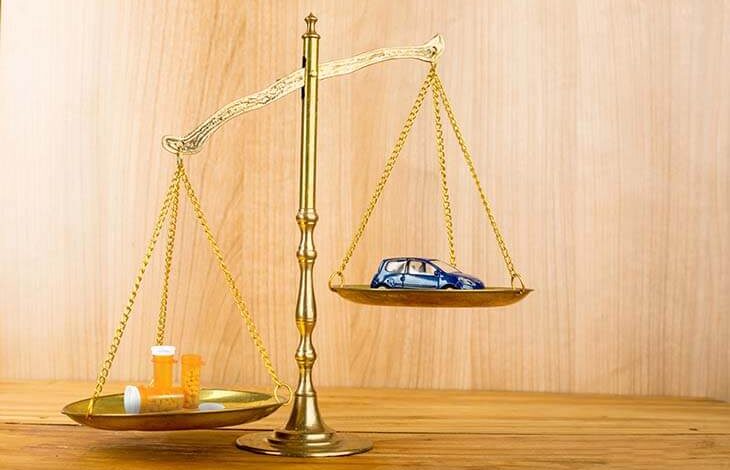Outpatient Behavioral Health Center in Newport Beach
Treatment for mental health disorders consists of prescription medications and psychotherapy in either an intensive setting such as inpatient or residential care or a more relaxed environment such as an outpatient behavioral health center. The outpatient mental health facility Newport Beach is a lower level of care. This means that individuals most likely have completed a higher level of care, such as residential or partial hospitalization treatment, and need maintenance care with a more flexible and informal approach. An outpatient mental health clinic can also be helpful for individuals who are in the early stage of their mental health disorder and have a strong will to succeed in recovery. These individuals must want to seek help on their own and have a reliable support system.
Individuals who struggle with the following mental health disorders and who have already completed a higher level of care or have a very mild form of the disorder may be able to attend outpatient therapy:
- Depression
- Bipolar disorder
- Anxiety
- Obsessive-compulsive disorder
- Personality disorder
- Posttraumatic stress disorder
- Schizophrenia
A different type of outpatient behavioral health facility
- Intensive outpatient care: Also known as IOP, intensive outpatient care requires individuals to obtain at least nine hours of group and/or individual therapy per week. These are usually divided into three evenings to five evenings a week for 12-16 weeks. This part-time therapy approach allows individuals to continue their daily lives without leaving their job or their families. Most individuals who enroll in IOP have either completed a higher level of care or are in the early stages of their addiction with a strong will for recovery.
- Outpatient care: Outpatient care is what most individuals in society associate with when they think of the term “therapy.” Regular outpatient care is a form of maintenance therapy where clients meet with their therapist on a less frequent basis, such as once a week or once every two weeks. During these sessions, discuss triggers, coping mechanisms, and any current life transitions or daily struggles that may interfere with their recovery. The goal of an outpatient behavioral health facility is to provide maintenance therapy to clients who already have the knowledge, strength, coping mechanisms, and support system that they need to thrive in recovery.
- Continuing care/community support: Alumni programs and community therapy groups are examples of continuing care programs that are often hosted by members or organizations within the client’s home community. These group-based sessions allow individuals to come together and share stories and experiences to support each other in their mental health recovery.
Therapy types at an outpatient behavioral health center
Psychotherapy at an outpatient mental health clinic provides various approaches that cater to the individual and family. Psychotherapy works to uncover and recognize underlying triggers, emotions, and past experiences contributing to the mental health disorder and provides clients with awareness and coping mechanisms to overcome these triggers. Psychotherapy also works to treat any co-occurring substance use disorders and eating disorders and helps individuals find strength in support systems. The following are specific psychotherapy approaches that are used on an outpatient basis to help treat mental health disorders:
- Cognitive-behavioral therapy
- Motivational interviewing
- Acceptance and commitment therapy
- Dialectal behavioral therapy
- Group psychodrama
- Experiential therapy
- Family behavioral therapy
Is an outpatient mental health clinic right for you?
- Are you medically stable? Outpatient mental health treatment is designed for confident individuals in their recovery, who do not currently have intentions to self-harm or harm others, and who have a reliable support system. Suppose an individual is struggling with active triggers, has medical complications associated with their mental health disorder, or does not have a strong support system. In that case, they may benefit from a higher level of care such as partial hospitalization or residential treatment.
- How much can you afford to spend? Outpatient mental health treatment is much less compared to a higher level of care treatments such as partial hospitalization or residential treatment. Most insurances cover treatment at an outpatient behavioral health center, and many treatment programs will work with insurance companies to determine how much care is covered.
- How motivated for recovery are you? Outpatient treatment does not offer constant supervision and support but instead encourages independence, a healthy support system, and a strong will to continue through recovery. Outpatient treatment is set up for motivated individuals who do.
AKUA Mind and Body – women’s residential treatment center has been ranked in the top seven in Newsweek’s 2021 list of the best addiction treatment centers in California




